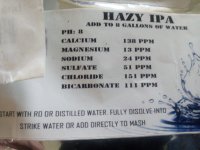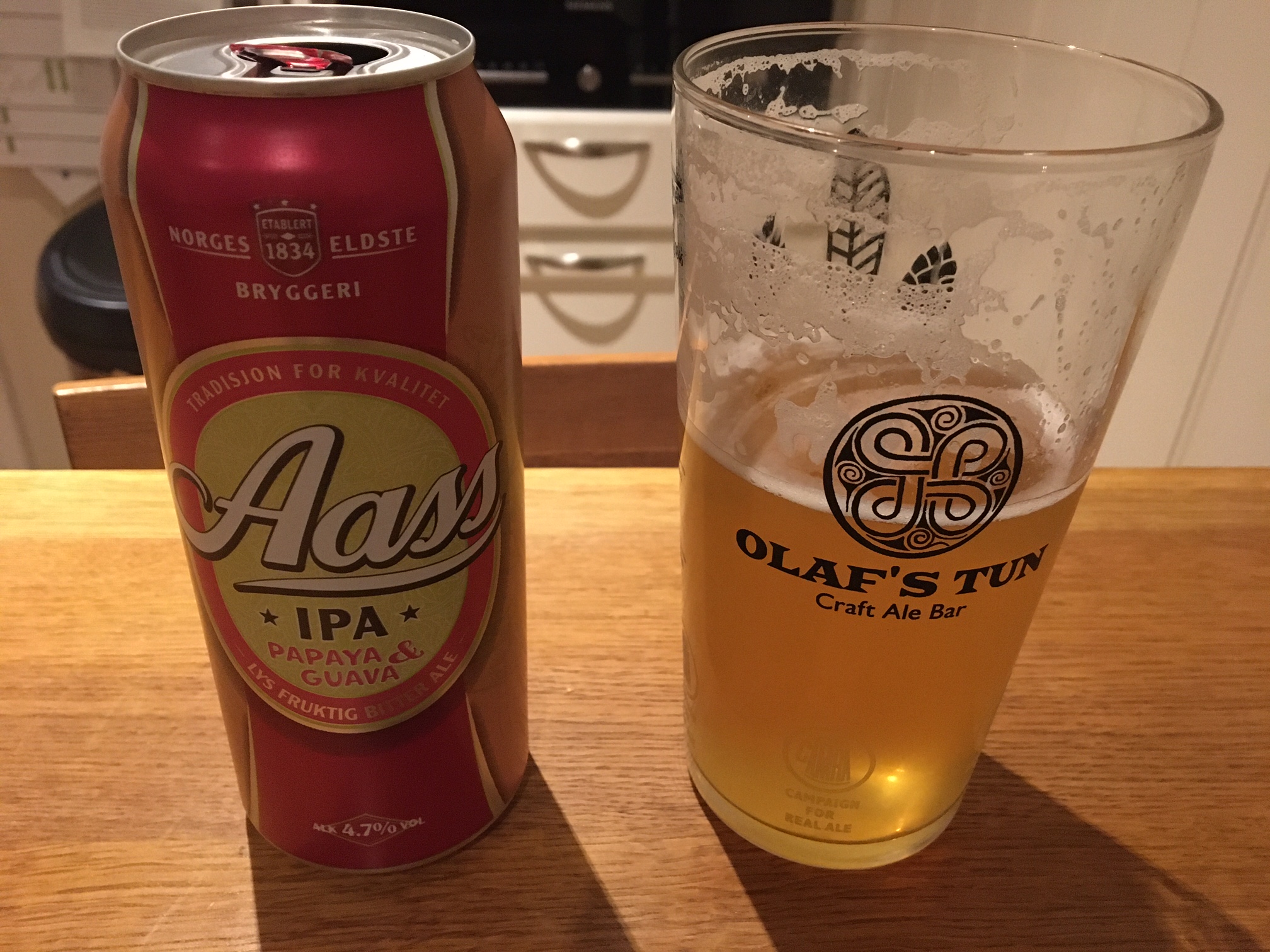slayer021175666
Well-Known Member
- Joined
- Sep 24, 2020
- Messages
- 561
- Reaction score
- 254
So, I have this pack of brewing salts here for a hazy ipa. It says to add it to 8 gallons of distilled or RO water. My problem is that it is now up to $5 and it's only good for a 5 gallon batch. What would I need to do in order to make my own? I see kits on the internet that have calcium magnesium sodium sulfate etc but, I don't know what to do with them if I did have them. I was hoping that someone here could look at the picture that I'm posting here and see the parts per million numbers on this and tell me what I would have to do in order to just make my own. I'm sure it would be way cheaper than $5 every 5 gallons of beer!





